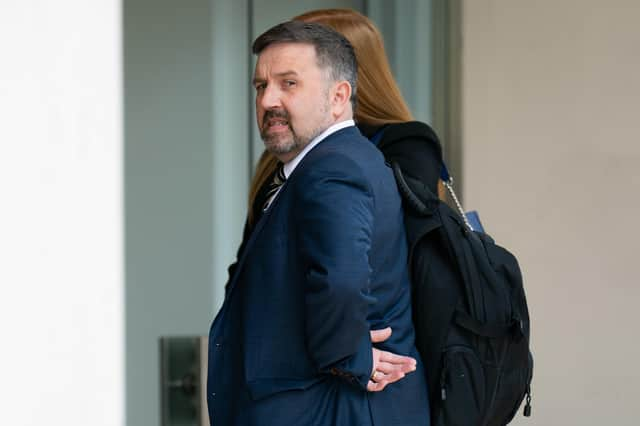Covid-19 Inquiry: Robin Swann says years of health service neglect hindered NI pandemic response


Robin Swann served as the Stormont health minister from the eve of the pandemic in January 2020 until the executive’s collapse last year.
Giving evidence to the UK Covid-19 Inquiry, he said years of stop-start government and short-term budgets had prevented the reform needed.
Advertisement
Hide AdAdvertisement
Hide AdMr Swann is the first politician from Northern Ireland to give evidence to the inquiry.
He started his evidence by extending his condolences to all the families who had lost loved ones during the pandemic, as well as thanking health staff for their efforts.
He also agreed with evidence given to the inquiry earlier by senior official Dr Denis McMahon that ministers were crucial and their absence was unacceptable.
Mr Swann said: “I believe firmly in devolution in Northern Ireland.
Advertisement
Hide AdAdvertisement
Hide Ad“It is also unfortunate that we’re back in that situation again, where we don’t have a functional executive or a minister of health at this point in time.”
Mr Swann took up the health portfolio after the department had gone three years without a minister, and was immediately faced with industrial action by staff, as well as the worst waiting lists in the UK.
He said the Bengoa Report in 2016 had set out a transformation of the health service that would have been possible.
But the following year, 2017, the executive collapsed following the resignation of then-deputy first minister Martin McGuinness.
Advertisement
Hide AdAdvertisement
Hide AdIt was resurrected in January 2020, and functioned through most of the pandemic before the resignation of Paul Givan as first minister in February 2022 saw it fall again.
“I’m a firm believer there were opportunities that were missed in regards to that period,” Mr Swann said.
He also said opportunities for reform were lost due to one-year budgets.
“We’ve been working with a single year budget from 2015/16,” he said.
Advertisement
Hide AdAdvertisement
Hide Ad“We’ve had numerous reviews in regards to different aspects of our health and social care service across Northern Ireland that have been failed to be enacted.”
Mr Swann said he still agreed with a previous statement he made that Stormont had let down the health service, with vital services underfunded, short-term decisions preferred over long-term planning, difficult choices ducked, staff underappreciated and social care particularly neglected.
He said the state of the health service in 2020 meant that surge capacity during the pandemic could only be found by redirecting and standing down other services.
The inquiry, announced by then-prime minister Boris Johnson in 2021, is examining the UK’s handling of the pandemic and is hearing from senior politicians, health officials and experts.